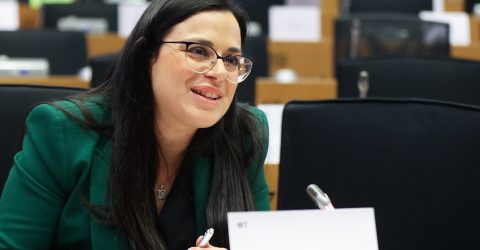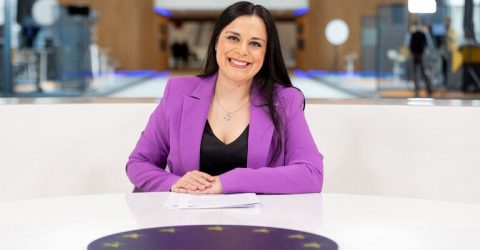Last Wednesday, I joined my fellow MEP colleagues in listening to European Commission President Urusula Von Der Leyen’s State of the Union addresss. The President touched upon a wide array of issues ranging from more abstract concepts such as European unity, to more real and imminent ones such as the contemporary semi-conducter shortage – without which we’d have no phones, laptops or tablets and the like.
Listening to the President’s speech, I was reminded of why I had made up my mind to run for the European Parliament elections in 2019. Although we’re a very diverse union – and it’s very important to recognise this diversity – there are various other aspects that unite us. Elements that range from global challenges such as the COVID19 pandemic and climate change, to opportunities such as increasing digitalization.
The President rightly pointed out that Europe has learnt lessons from its past. She compared the economic consequences of the COVID19 crises to the 2008-2012 European debt crises, and noted that whereas in the latter, Europe went for austerity, nowadays increasing growth via public expenditure is the talk of the day. I couldn’t agree more with her point in this regard. Countries like Greece, ended up suffering a disprorportionate burden in the Eurozone crises. People lost their jobs, their incomes, and their livelihoods. This in turn led to increxasing euroscepticism among the Member States.
Fast forward to 2021, and there is a push for the European Union to be seen as the one that is coming up with solutions, rather than the one creating problems. This, in of itself, is proof of the fact that the Union changed track in the last ten years. However, we cannot assume that we will get there all alone. Public consensus and international collaboration are definitely essential.
I was very proud in fact to bring to the debate the perspective of the Maltese and Gozitan people following the President’s speech. Although our islands are considerably far away from Brussels, they are very much profoundly European. As I made clear on Wednesday we stand ready to be the bridge between the Union, our Mediterranean partners and beyond, especially in a time when the strengthening of cooperation with our neighbours and partners is of utmost importance.
Likewise, I also welcomed the fact that social justice and work life balance were given a priority. Von Der Leyen was right in stating that the pandemic has taught us how precious time is. It is our job now to make sure that we spend this precious time on bettering the lives of those who have it rough and of building more on inclusiveness. After all, a Europe that truly cares about social rights is one that would bring equality amongst its citizens and the diverse regions within our Member States: something that is an absolute must if the Union is to survive, and thrive. This is especially the case in relation to issues such as migration, where there is a disproportionate burden on the periphery: something that must be addressed concretely.
We must also live up to the expectations of our youth and ensure a bright future for them – a future that offers economic security and opportunity. For this reason, I greatly welcome the upcoming European Year of Youth and the special programme for the unskilled youths. It is paramount that the Union works for the disadvantaged just as much as it works for those who were born in a more comfortable setting. Delivering on this promise will, in my view, work wonders in giving people a reason to be pro-European unity.
Lastly, I also welcome the Commission’s recognition of Malta´s efforts in strengthening the rule of law. The reforms that have been taking place however continue to encourage us to continue strengthening our institutions – together. In other words, let’s continue strengthening the rule of law, media protection, our rights, and our Union.
Words are well and good. But it is actions that bring about change, and thus I conclude by saying that the next step for the European Commission is now is to move from words to concrete actions via its upcoming work programme. A work programme which will then need to be actioned upon by the European institutions together. For it is only by doing this, that we will be able to leave a country, and a Union, that is truly better than we found it.





